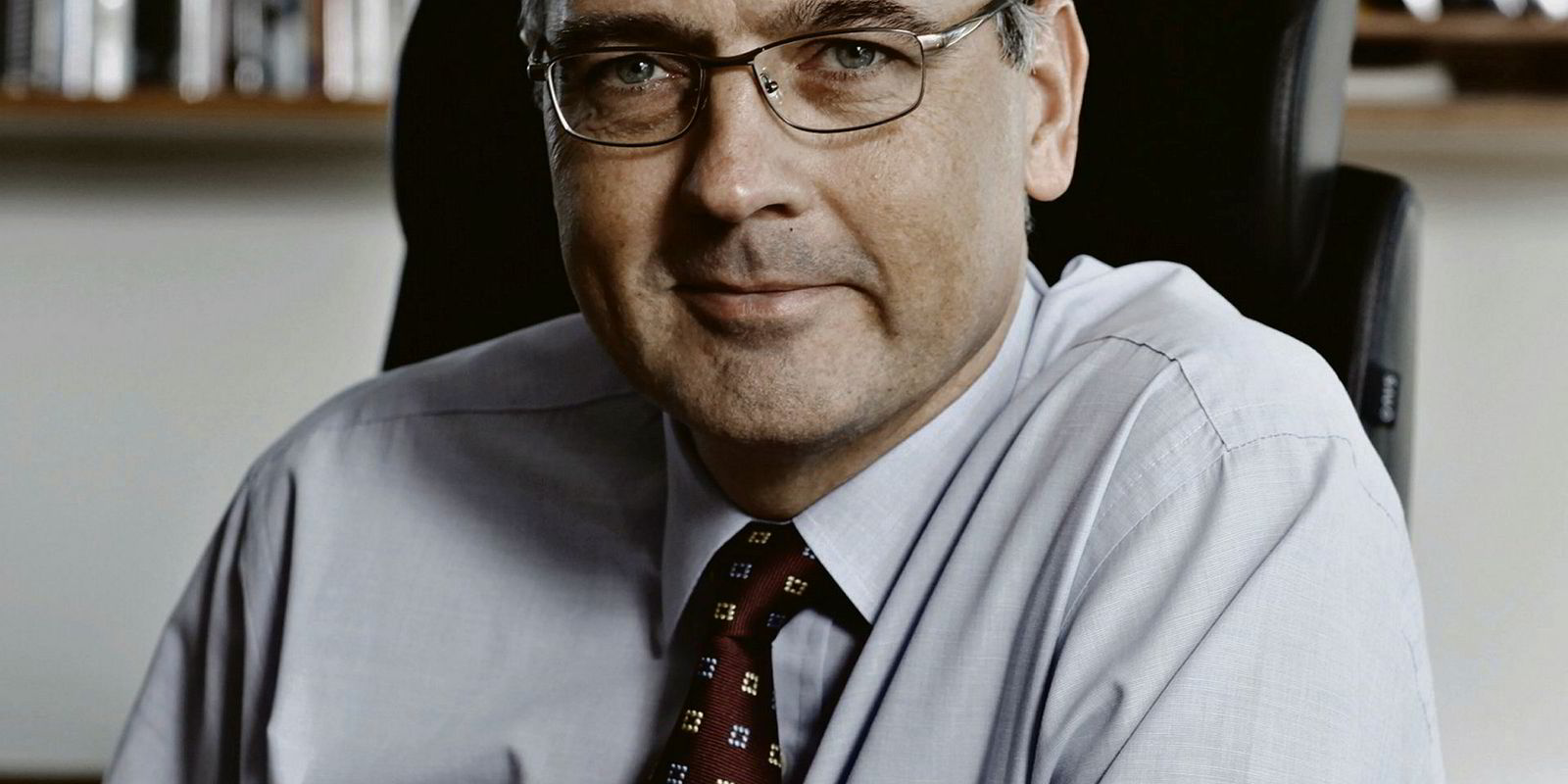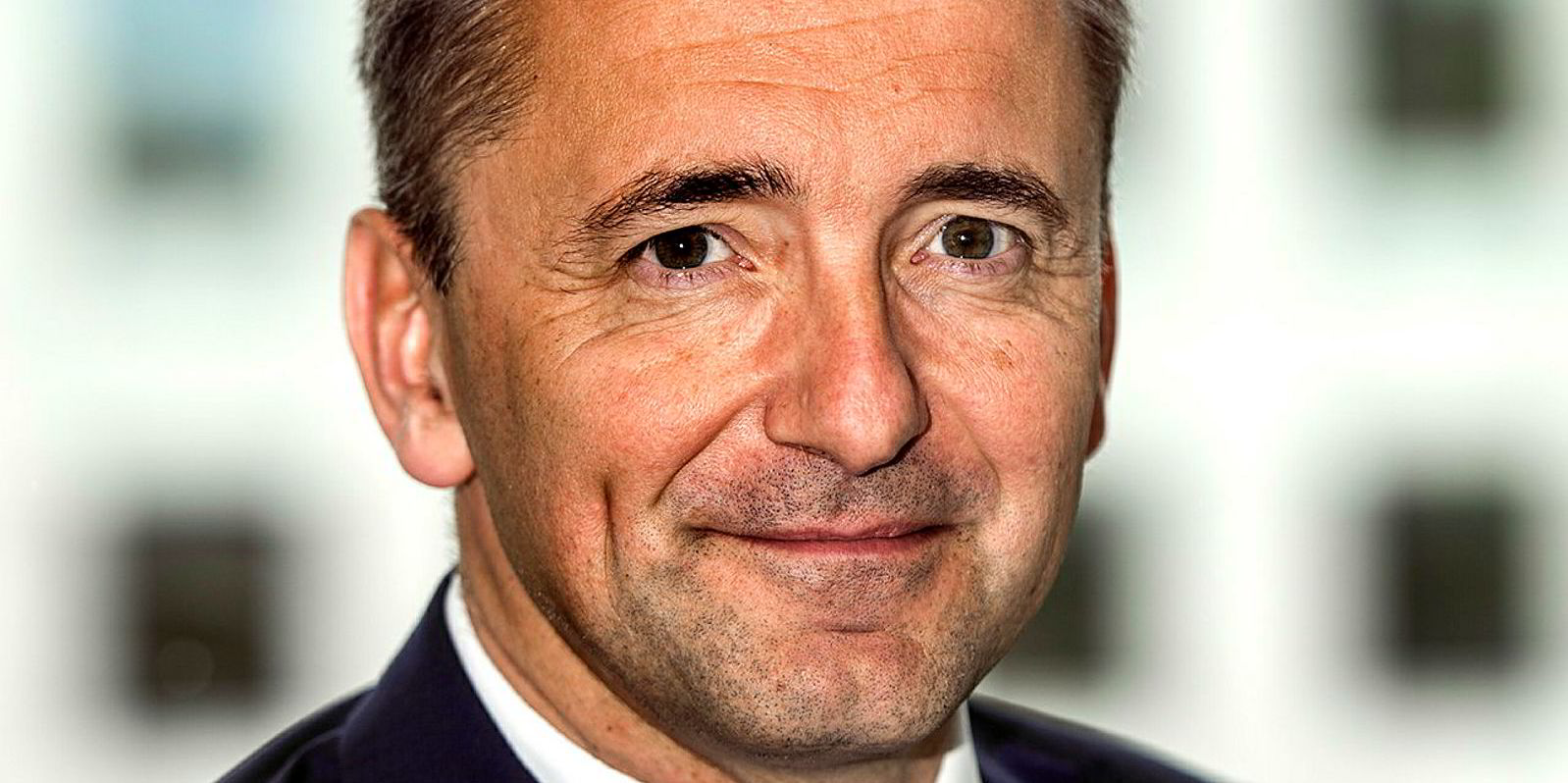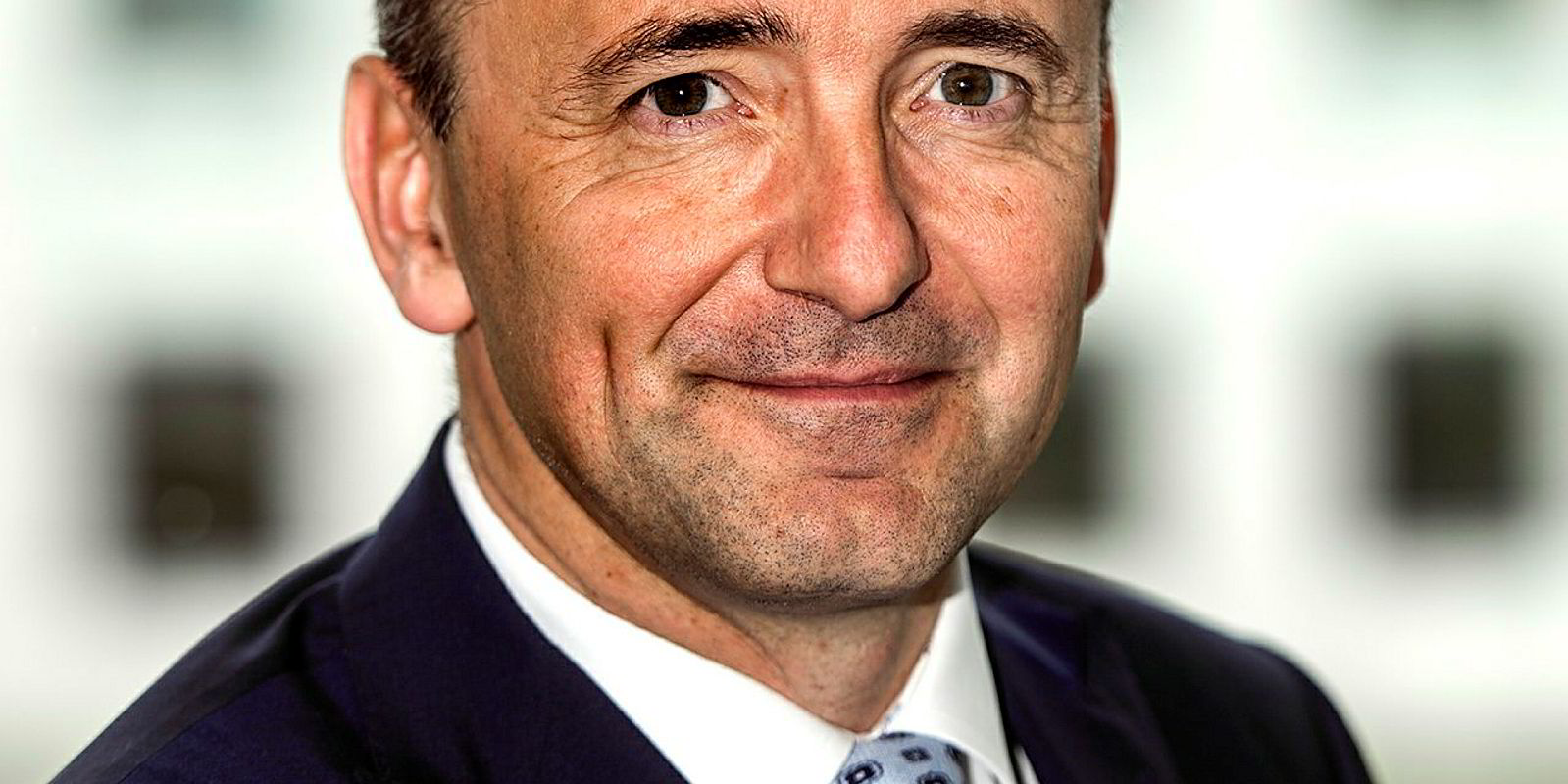“Daunting” and “interesting” were the adjectives chosen by AP Moller-Maersk veteran Claus Hemmingsen to describe his role in the strategic transformation of the group.
Ane Maersk Mc-Kinney Uggla, the daughter of legendary shipowner Maersk Mc-Kinney Moller, opted for a shipping analogy, calling the company a “supertanker” that required time to change direction.
The world’s largest shipping group started to shift from a shipping and energy conglomerate to a transport and logistics specialist in 2016.
At its annual general meeting earlier this month, questions were still being asked by some investors about whether the strategy was correct — even as the first phase, the exit from the energy business, was essentially complete.
‘FedEx’ strategy
On the surface, the bid to become the self-styled "FedEx" of transport and logistics makes sense, given Maersk's shares have historically suffered from a “conglomerate discount” and investors have increasingly been drawn to pure-play vehicles.
However, as with the sale of Maersk Tankers’ VLCC fleet to Euronav in 2014, questions have repeatedly been asked, and rebuffed, about why the energy divisions had to be sold or separated at what were far from cyclical peaks.
- September 2016: Review sets new strategy, which involves separating the transport and logistics and the oil and oil-related businesses into two divisions, with energy firms to be split from the group over time
- August 2017: AP Moller-Maersk sells Maersk Oil to Total for $7.45bn in a cash and shares deal. The transaction closes on March 2018
- September 2017: Private company AP Moller Holding buys Maersk Tankers in a $1.17bn move alongside Japan's Mitsui & Co
- February 2018: Chief executive Soren Skou announces plans to build AP Moller-Maersk into an investment-grade transport and logistics firm to stand alongside FedEx and UPS
- August 2018: Plan to spin-off Maersk Drilling with a listing in Copenhagen is announced
- March/April 2019: Efforts to find a buyer for Maersk Supply Service are aborted and Claus Hemmingsen, chief executive of the group's energy division, resigns. Maersk Drilling is listed, with Hemmingsen as chairman
Maersk Drilling was listed independently earlier this month, at what respected SEB analyst Lars Heindorff described as pretty close to the bottom of the cycle.
The divestment of Maersk Tankers to AP Moller Holding was a similar case, while Maersk Oil was sold to Total, removing a source of relatively stable cash flow from the group.
In the case of the offshore support vessel division, Maersk Supply Service, efforts to sell have been shelved given the depressed market.
“I think what people have realised in this process — which they did not think about in the beginning — is the container part has, despite massive consolidation, not improved to the extent most expected,” Heindorff says. “This has left Maersk with a business which is far more focused but far more operationally levered.”
This has generated some sympathy for Maersk, with the new policy meeting many of investors' key demands but failing to gain recognition or reward for the company.
Strategic progress
In its 2018 annual report, Maersk stressed “considerable progress” had been made in the strategic process, which it has been looking to accelerate. A 26% revenue increase, a 22% jump in volumes and a 41% drop in interest-bearing debt were all highlighted.
“The objective of the transformation of AP Moller-Maersk is to set the company on a new profitable growth trajectory," chief executive Soren Skou wrote. "In the past two-and-a-half years, we have come far in regaining our growth ambition, but we still need to improve profitability from the level seen in 2018.”

With the listing of Maersk Drilling and the decision to stop shopping for a buyer for Maersk Supply Service in early April, Hemmingsen departed as chief executive of the energy division and Skou’s deputy at group level.
Hemmingsen describes the decision as genuinely mutual, with his task to split off the businesses complete.
“The purpose was to find long-term sustainable solutions for the companies, and the employees of the companies, at the same time as creating shareholder value,” he tells TradeWinds. “If I look at it myself, that has been fairly successful with the transactions we have made and the value we created for our shareholders.
“At the same time, I believe we took really good care of the companies and the employees. I’m looking back after two-and-a-half hectic years with a good sense of achievement on the solutions we found.”
Tangible rewards
While the timing of the deals has been questioned, HSBC analyst Edward Stanford says Maersk shareholders are this year set to see tangible rewards after the long separation process.
He has projected up to $4bn in equity value for Maersk Drilling, with cash of up to $3.75bn expected to be distributed in the second half of 2019.
Stanford also notes progress has been made in the second phase of the strategy, including above-market volume growth in terminals, the integration of Hamburg Sud and the blending of logistics arm Damco into the group’s Ocean division, which includes much of Maersk Line.
Hemmingsen concedes “the transformation of the transport and logistics part of the business is a longer one” and one that he describes as “considerable”.
But he adds: “There is a lot of success and a lot of speed in that task as well."
Investment grade
Further complicating the challenge for Skou is the company's need to retain its investment grade during the public overhaul. There is little wiggle room with Maersk, which is just one notch from losing that status with ratings agency Moody’s.
With debt levels and operating profit two key metrics in the Moody’s calculation, one analyst, speaking on condition of anonymity, says Maersk Line has been forced into adopting a more defensive position in the container business.
“For the first time in their history, Maersk Line is restrained in its ability to grow with the market,” the analyst says. “This has never happened before."






